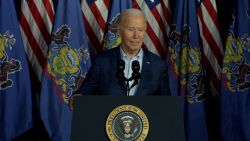On Tuesday, the Republican-controlled Alabama state legislature passed a measure that would ban abortion – with the exception of when the life of the mother is in jeopardy – in all circumstances. The state’s Republican governor – Kay Ivey – signed it on Wednesday, meaning two things will happen: 1) Alabama will become the state with the country’s most restrictive abortion law and 2) the law will immediately become fodder for the swirling debate over if (and when) the Supreme Court might consider overturning the landmark Roe v. Wade ruling.
That two-pronged goal was clearly the intent of the bill’s sponsor – state Rep. Terry Collins (R), who said after the vote: “This bill is about challenging Roe v. Wade and protecting the lives of the unborn, because an unborn baby is a person who deserves love and protection.”
It quite clearly will challenge the ruling, since prohibiting abortion in all but one case seems to directly come into conflict with the Supreme Court’s finding that it is against the law to place an “undue burden” on a woman seeking an abortion before a viable fetus – one that can live outside the womb – emerges. And while the Alabama law is the strictest in the nation – and therefore most at-odds with established federal law – is it far from the only piece of abortion legislation that seeks to push the boundaries of Roe. Last month, Ohio Gov. Mike DeWine signed a so-called “fetal heartbeat” law, which bans abortions after a fetal heartbeat is detected, which can come as early as the 6-week mark – a time when some women may still not even know they are pregnant. Georgia Gov. Brian Kemp signed a similar measure earlier this month.
These laws will almost immediately be appealed – and will join a growing list of cases that could arrive at the doorstep of the Supreme Court in the not-too-distant future. The court is poised in upcoming months to consider hearing a challenge to a Louisiana law that would force doctors to have admitting privileges at a hospital within 30 miles of where an abortion is performed, a stricture that those opposed to the law insist violates the “undue burden” notion. According to CNN Supreme Court expert Joan Biskupic, the court calendar could well mean that a ruling on the Louisiana law comes down in the summer of 2020 – right in the heart of the presidential campaign.
Now, the court rejected a Texas law very similar to the Louisiana one back in 2016. But – and this is the point – that was a very, very different court. For starters, there were only eight members. Senate Republicans refused to meet with or hold confirmation hearings for then-President Barack Obama’s nominee – Merrick Garland – citing the fact that it was too close to a presidential election for the outgoing Obama to make such a consequential pick. When that ninth spot on the court was eventually filled, it was with Neil Gorsuch, a conservative selected by President Donald Trump.
The other big difference between the 2016 court and today’s court? Swing vote Anthony Kennedy has been traded out for conservative Brett Kavanaugh. Which means that there are five conservative justices and four liberals on the court. The new court’s makeup has many legal experts convinced that the next time a serious challenge to Roe is heard, the law will be struck down. “Anthony Kennedy is retiring. Abortion will be illegal in twenty states in 18 months. #SCOTUS,” tweeted CNN legal analyst Jeffrey Toobin in June 2018.
And Trump, for his part, has been transparent about his desire to see Roe overturned. Witness this exchange with “Fox News Sunday” host Chris Wallace in the late stages of the 2016 campaign:
WALLACE: You just said you want to see the court protect the Second Amendment. Do you want to see the court overturn Roe v. Wade?
TRUMP: Well, if we put another two or perhaps three justices on, that’s really what’s going to be — that will happen and that will happen automatically in my opinion because I am putting pro-life justices on the court.
That – “put another two or perhaps three justices on” – is, of course, exactly what Trump has done in the two-plus years he has been President.
Other experts are less certain that Roe will be eliminated anytime soon – no matter what Trump thinks. Wrote Biskupic earlier this month:
“Rapid and dramatic moves by states to ban abortion at six weeks of pregnancy appear to set up an immediate fight over Roe v. Wade. But such direct challenges to the 1973 milestone are years from any Supreme Court hearing, and advocates on both sides are more urgently strategizing over the pending cases that would establish the terms for the eventual showdown.”
The more likely outcome, she believes, is the court taking incremental steps on Roe as opposed to wiping the law out in one fell swoop.
And, when gaming out how the court would rule on even these incremental measures, it may be too facile to simply look at the five conservative justices and assume they will automatically vote for anything that chips away at the abortion law.
Chief Justice John Roberts, who was appointed to the court by President George W. Bush, has repeatedly emphasized his concern about the court breaking with past precedents, which would seemingly include Roe. “It is a jolt to the legal system when you overrule a precedent,” Roberts told then-Sen. Arlen Specter (Pa.) at his 2005 confirmation hearing. “Precedent plays an important role in promoting stability and even handedness.” Roberts seemed to stick by that view in a February ruling in which he sided with the four liberal justices to block the Louisiana law.
And even Kavanaugh deferred to precedent when asked about Roe during his confirmation hearings. “As a general proposition I understand the importance of the precedent set forth in Roe v. Wade,” he said. (Worth noting: He wrote a 2003 memo in which he said the Supreme Court “can always overrule” Roe.)
The point here is two-fold. First, there’s no doubt that legislation like the abortion ban in Alabama is aimed at the larger goal of prohibiting abortion nationwide. Second, the court has been mysterious enough on the issue to make it very difficult to predict with certainty how it might rule – and when – on these challenges to Roe.
CORRECTION: This story has been updated to correctly state that the Supreme Court is poised to consider hearing a challenge to the Louisiana law.




















